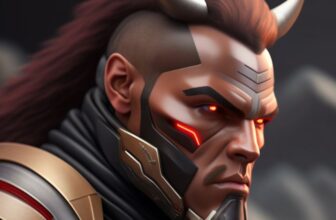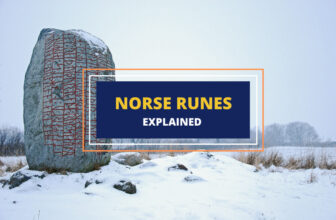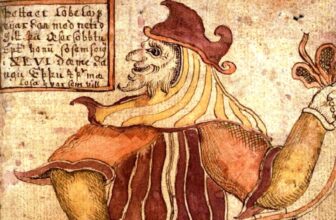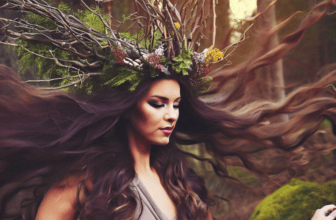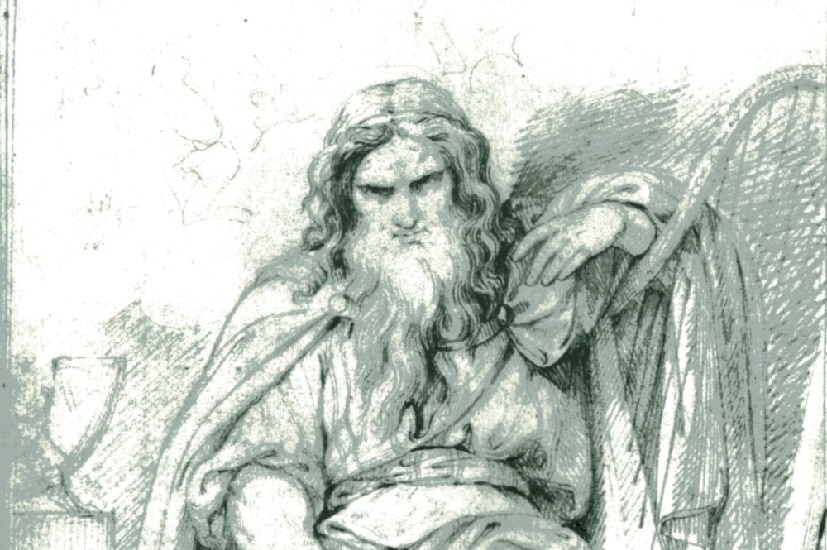
Table of Contents
The god of poetry and wisdom, Bragi is often mentioned in Norse legends. While his role in these myths aren’t highly significant, he is one of the most unanimously beloved of the Norse deities who also has a very mysterious backstory.
Who is Bragi?
According to the Icelandic author of Prose Edda, Snorri Sturluson, Bragi was the Norse god of poetry, as well as a son of Odin and husband of the goddess Idun – the goddess of renewal whose apples gave the gods their immortality.
No other authors mention Bragi as Odin’s son, however, so it’s disputed whether he was one of the many sons of the Allfather or was just “his kin”. Other sources mention Bragi as the son of the giantess Gunnlod who guards the mead of poetry in another myth.
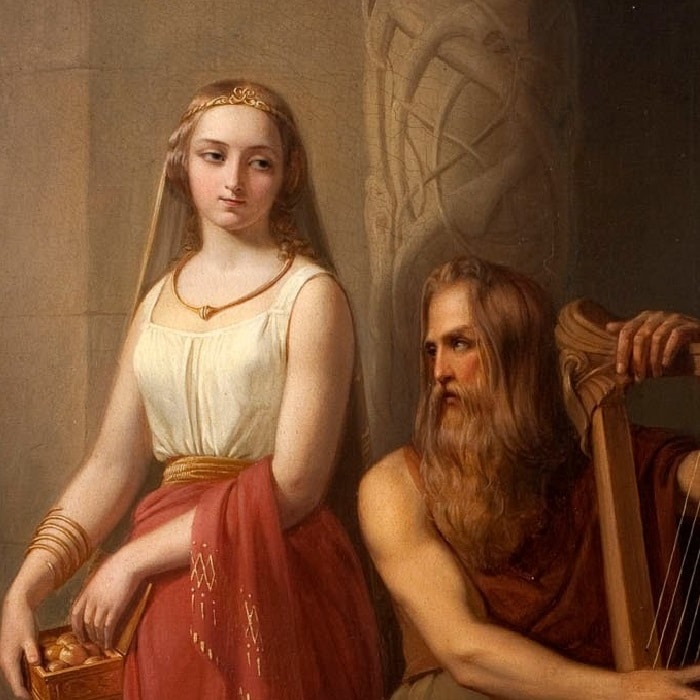
Regardless of who his parents are, Bragi is often described as a kind and wise bard, a loving husband, and a friend of the people. As for his name, it has nothing to do with the English verb to brag but comes from the Old Norse word for poetry, bragr.
Which Came First – Bragi as God or Man?
Bragi’s parentage is not the only point of dispute around his heritage, however – many believe that Bragi wasn’t a god at all. That’s because of the famous ninth-century Norwegian court bard Bragi Boddason. The poet was a part of the courts of such famous kings and vikings as Ragnar Lothbrok, Björn at Hauge, and Östen Beli. The poet’s work was so moving and artful that to this day he’s one of the most famous and iconic of the old Scandinavian poets.
That, plus the fact that most mentions of the god Bragi are fairly recent raises the question of who was first – god or man?
Another thing that lends credence to the theory of the man “becoming” the god is the fact that the god Bragi was often described as playing his poems to the dead heroes coming to Valhalla. Many stories describing Odin’s great halls include Bragi welcoming the fallen heroes. This can be viewed to imply that Bragi Boddason, the real life poet, himself went to Valhalla after his death and later authors who “gave” him godhood.
At the same time, however, it’s just as likely that the god “came first” and Bragi Boddason was just a famous bard named after the god. The lack of myths for the god of Bragi prior to the ninth century is hardly surprising given that most Norse gods were rarely written about before that. Additionally, there are several myths that imply Bragi has had older myths and legends that simply haven’t survived to this day. One such legend is the Lokasenna.
The Lokasenna, Bragi, Loki, and Idun’s brother
The story of the Lokasenna tells of a great feast in the halls of the sea giant/god Ægir. The poem is part of Snorri Sturluson’s Poetic Edda and its name literally translates to The Flyting of Loki or Loki’s Verbal Duel. That’s because most of the poem consists of Loki arguing with almost all the gods and elves at Ægir’s feast, including insulting almost all the women present of adultery.
Loki’s very first quarrel in Lokasenna, however, is with none other than Bragi. Just as the bard is often described as welcoming the heroes in Valhalla, here he was said to have stood at the doors of Ægir’s hall, welcoming the sea giant’s guests. When Loki tried to enter, however, the bard wisely denied him entrance. Odin made the mistake of overturning Bragi’s decision, however, and allowed Loki in.
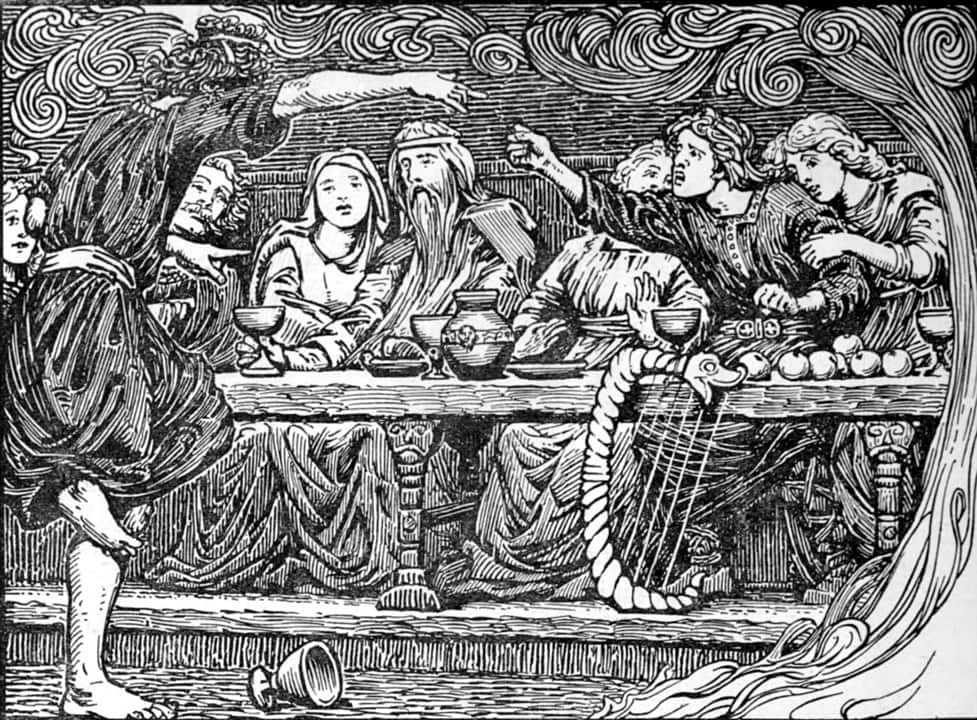
Once inside, Loki made sure to personally greet all of Ægir’s guests except Bragi. Later in the evening, Bragi tried to apologize to the trickster god by offering him his own sword, arm ring, and his horse, but Loki refused. Instead, Loki accused Bragi of cowardice by saying that he was the most afraid to fight of all the gods and elves in Ægir’s hall.
This angered the otherwise calm poet and Bragi told Loki that if they were outside the sea giant’s hall, he would have the trickster’s head. Before things got more heated, Bragi’s wife Idun hugged Bragi and tried to calm him down. In his true fashion, Loki took the opportunity to snarl at her too, accusing her of embracing her brother’s murderer. After that, the trickster god moved on to insult the rest of Ægir’s guests.
While seemingly insignificant, this line in the Lokasenna may tell us a lot about the unknown history of Bragi and Idun.
In the Norse myths and legends we know of today, Idun, the goddess of renewal, doesn’t have a brother and Bragi doesn’t kill anyone related to Idun. If true, however, this line implies that there are other, much older myths about the god of poetry which simply haven’t survived to modern times.
This is very plausible as historians have always acknowledged that only a fraction of the ancient Norse and Germanic myths have survived to this day. This would also mean that the god Bragi certainly predates the bard Bragi Boddason.
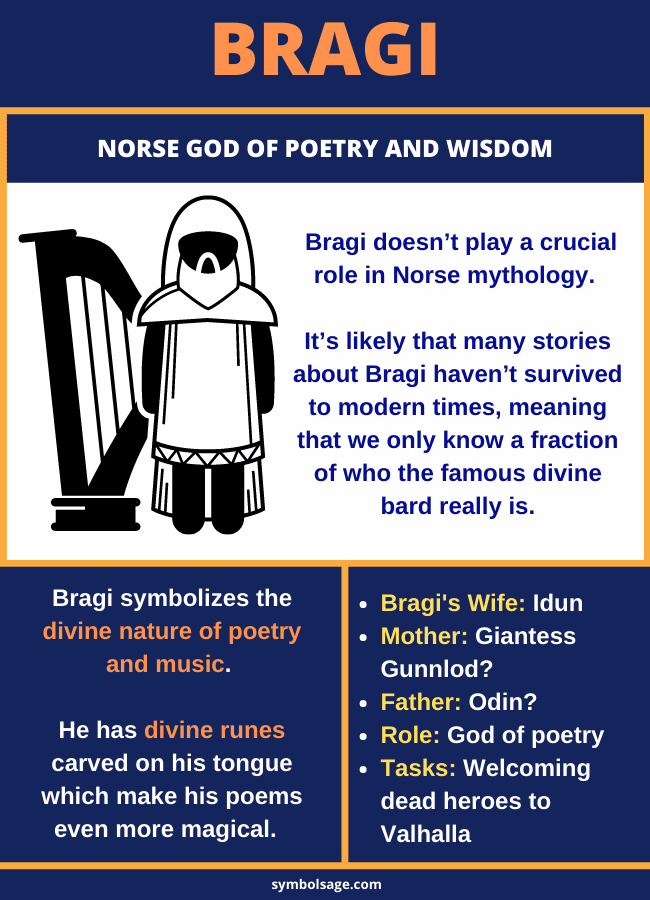
Symbolism of Bragi
As a god of poetry, Bragi’s symbolism is rather clear and unambiguous. The ancient Norse and Germanic people valued bards and poetry – many of the old Norse heroes were said to have been bards and poets as well.
The divine nature of poetry and music is further exemplified by the fact that Bragi is often described as having divine runes carved into his tongue, making his poems even more magical.
Importance of Bragi in Modern Culture
While Bragi was widely loved by the ancient Norse people and is treasured as a symbol in Scandinavia to this day, he doesn’t have a very significant presence in modern culture.
He is featured in the digital card game Mythgard but aside from that, he can mostly be seen in old paintings such as this mid-19th century painting by Carl Wahlbom or this image of Bragi and Idun from 1985 by Lorenz Frølich.
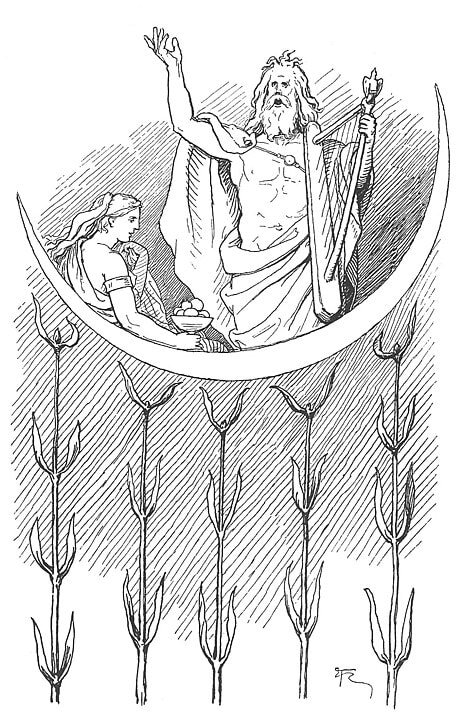
Wrapping Up
Although he appears frequently in Norse mythology, Bragi doesn’t play a crucial role in the stories. However, it’s likely that many stories about Bragi haven’t survived to modern times, meaning that we only know a fraction of who the famous divine bard really is.




